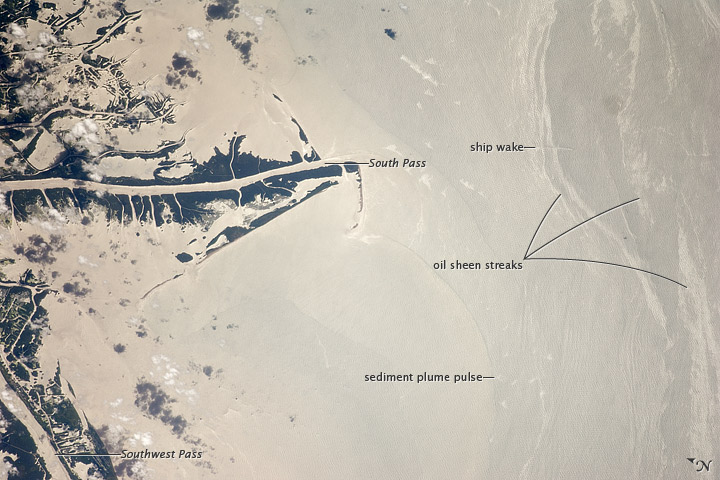
Oil Slick, Mississippi River Delta, Gulf of Mexico, an astronaut photo taken from the International Space Station, image courtesy NASA
The news from science is trickling out more slowly now. Many researchers have collected a ton of new data, which they’re currently in the process of analyzing. Expect a scientific baby boom about nine months from now. But what is getting out is really interesting:
- A growing concern that BP’s use of dispersants facilitated the release of toxic oil components—including benzene, a carcinogen, and toluene, which can cause neurological damage—and which are still remaining in the water. (In my article, BP’s Deep Secrets, I wrote about the alarming volatility of the oil washing ashore in Louisiana.)
- Concerns about the long-term effects of even weathered oil. A series of papers (here and here) highlight the ongoing problems with pink salmon and Pacific herring eggs and larvae in the wake of the Exxon Valdez disaster, from the kind of of weathered oil that NOAA and BP would like us to believe is now harmless.
- Perhaps as a beneficial side-effect of BP’s cataclysm, a Candian court handed down a temporary injunction on behalf of a group representing Inuit interests to halt plans for seismic studies of the Earth’s crust in eastern Canadian Arctic waters. This is a thinly-veiled effort to locate Arctic oil and gas reserves. The 8 August decision by the Nunavut Court of Justice bars the RV Polarstern from beginning its research activities over fears the cruise could impact wildlife and raise the prospects for oil drilling in the region. Sonar sounding for fossil fuels imperils bowhead whales, their calves, and other marine life.












